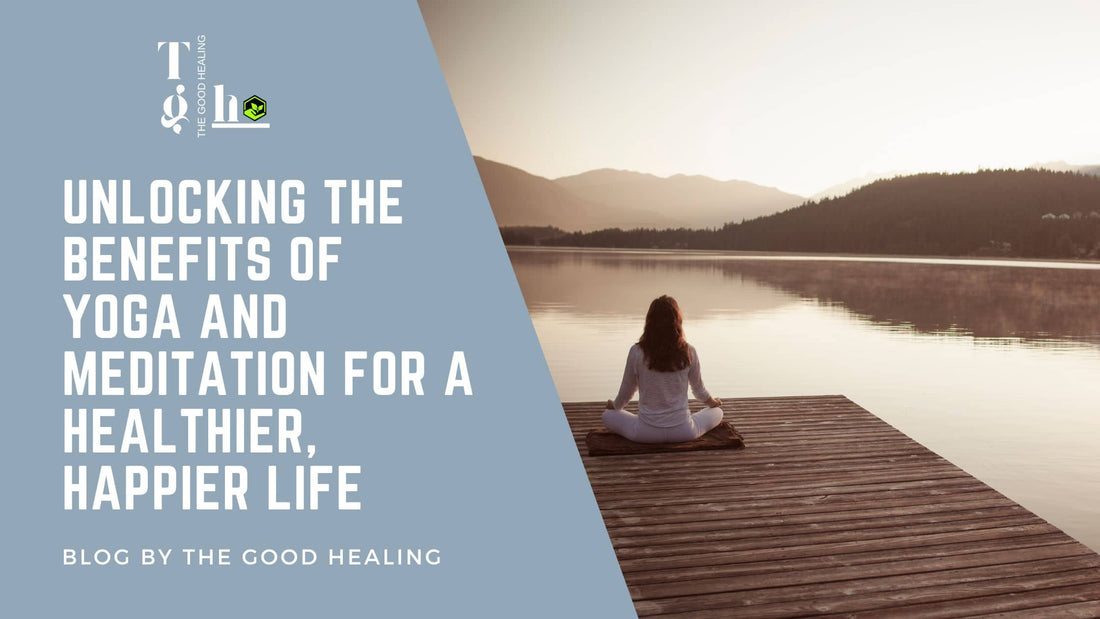In today’s fast-paced world, stress and anxiety are common issues that many people face daily. Fortunately, ancient practices like yoga and meditation offer powerful tools to combat these modern challenges. By incorporating these practices into your daily routine, you can experience a range of physical, mental, and emotional benefits. This comprehensive guide explores the numerous advantages of yoga and meditation, providing insights into how these practices can enhance your overall well-being.
The Foundations of Yoga and Meditation
Understanding Yoga
Yoga is an ancient practice that originated in India over 5,000 years ago. It encompasses a variety of physical postures (asanas), breathing techniques (pranayama), and meditation practices aimed at promoting harmony between the body, mind, and spirit. The word “yoga” itself means “union,” reflecting its goal of integrating all aspects of the self.
Exploring Meditation
Meditation is a mental practice that involves focusing the mind on a particular object, thought, or activity to achieve a mentally clear and emotionally calm state. It has been practiced for thousands of years in various forms across different cultures and religions. Common types of meditation include mindfulness meditation, transcendental meditation, and loving-kindness meditation.
Physical Benefits of Yoga and Meditation
Improved Flexibility and Strength
One of the most noticeable benefits of yoga is increased flexibility. Regular practice of yoga postures stretches muscles and joints, enhancing overall flexibility. Additionally, many yoga poses require holding and balancing your body weight, which strengthens muscles and builds endurance. To get started on your journey towards improved flexibility and strength, check out this Yoga Positions Poster. It's a great resource for learning and perfecting various yoga poses, making it easier to incorporate yoga into your daily routine.
Enhanced Respiratory Health
Both yoga and meditation involve deep, mindful breathing techniques that can improve lung capacity and efficiency. Pranayama, a core component of yoga, emphasizes controlled breathing patterns that can enhance respiratory health and reduce symptoms of conditions like asthma.
Better Cardiovascular Health
Yoga and meditation can contribute to a healthier heart. Yoga’s combination of physical activity and stress reduction helps lower blood pressure, improve circulation, and reduce cholesterol levels. Meditation also promotes cardiovascular health by reducing stress and encouraging a calm state of mind, which can lower heart rate and blood pressure.
Pain Management
Chronic pain conditions such as arthritis, lower back pain, and fibromyalgia can be alleviated through regular yoga practice. The gentle stretching and strengthening exercises in yoga can help reduce pain and improve mobility. Meditation can also aid in pain management by altering the perception of pain and reducing stress-related pain flare-ups.

Mental and Emotional Benefits of Yoga and Meditation
Stress Reduction
One of the most well-known benefits of yoga and meditation is their ability to reduce stress. By focusing on the present moment and practicing mindfulness, these activities can lower cortisol levels, the body’s primary stress hormone. This can lead to a calmer mind and a more relaxed body.
Enhanced Mental Clarity and Focus
Regular meditation practice can significantly improve concentration and cognitive function. By training the mind to focus on a single point or thought, meditation enhances the brain’s ability to concentrate and process information more efficiently. Yoga, with its emphasis on breath and movement synchronization, also improves mental clarity and sharpness.
Emotional Balance and Well-being
Yoga and meditation promote emotional health by increasing self-awareness and fostering a sense of inner peace. Meditation encourages the development of positive emotions such as compassion, gratitude, and kindness, which can enhance overall emotional well-being. Yoga’s mind-body connection helps in recognizing and managing emotions effectively.
Better Sleep Quality
Practicing yoga and meditation can lead to improved sleep patterns. The relaxation techniques used in these practices help calm the nervous system and prepare the body for restful sleep. Additionally, reducing stress and anxiety through yoga and meditation can help alleviate insomnia and other sleep disorders.

Spiritual Benefits of Yoga and Meditation
Deepened Self-Awareness
Both yoga and meditation are powerful tools for self-discovery and personal growth. They encourage introspection and mindfulness, helping individuals understand their thoughts, emotions, and behaviors on a deeper level. This heightened self-awareness can lead to more intentional living and a stronger connection with one’s true self.
Enhanced Sense of Connection
Yoga and meditation foster a sense of connection with oneself, others, and the universe. This spiritual connection can be particularly enriching, providing a sense of purpose and belonging. Many practitioners report feeling more connected to the world around them and experiencing a greater sense of unity and compassion.
Cultivation of Inner Peace
At their core, yoga and meditation are practices that cultivate inner peace and tranquility. By quieting the mind and focusing on the present moment, these practices help individuals find a sense of calm amidst the chaos of daily life. This inner peace can be a profound source of strength and resilience.
Practical Tips for Incorporating Yoga and Meditation into Your Routine
Start Small and Build Gradually
If you’re new to yoga and meditation, start with short, manageable sessions. Begin with 10-15 minutes of meditation or a gentle yoga routine, and gradually increase the duration as you become more comfortable. Consistency is key, so aim to practice daily or several times a week.
Create a Dedicated Space
Having a dedicated space for your yoga and meditation practice can enhance the experience. Choose a quiet, comfortable area where you won’t be disturbed. Consider adding elements like candles, incense, or calming music to create a peaceful atmosphere.
Use Guided Resources
There are numerous resources available to help you get started with yoga and meditation. Guided videos, apps, and online classes can provide structure and support as you develop your practice. Some popular options include Yoga with Adriene on YouTube, the Headspace app for meditation, and the Down Dog app for yoga.
Listen to Your Body
Yoga and meditation should be enjoyable and beneficial, not painful or stressful. Listen to your body and avoid pushing yourself too hard. If a particular pose or meditation technique doesn’t feel right, modify it or try something different. The goal is to find what works best for you.
Practice Mindfulness
Both yoga and meditation emphasize the importance of mindfulness—being fully present in the moment without judgment. As you practice, focus on your breath, bodily sensations, and thoughts without getting caught up in them. This mindfulness can carry over into other areas of your life, promoting a more mindful and balanced approach to daily activities.
Conclusion: Embrace the Journey
The journey of yoga and meditation is a deeply personal one, filled with opportunities for growth, healing, and transformation. Whether you’re seeking physical benefits, mental clarity, emotional balance, or spiritual connection, these ancient practices offer a path to a healthier, happier life. By incorporating yoga and meditation into your routine, you can unlock their myriad benefits and embark on a journey towards greater well-being.
Embrace the journey, practice regularly, and allow yourself to experience the profound impact of yoga and meditation on your life.
Incorporating yoga and meditation into your daily routine can be a transformative experience, offering numerous benefits for the body, mind, and spirit. From improved flexibility and strength to enhanced mental clarity and emotional balance, these practices provide a holistic approach to health and wellness. Start small, be consistent, and enjoy the journey towards a healthier, happier you.


